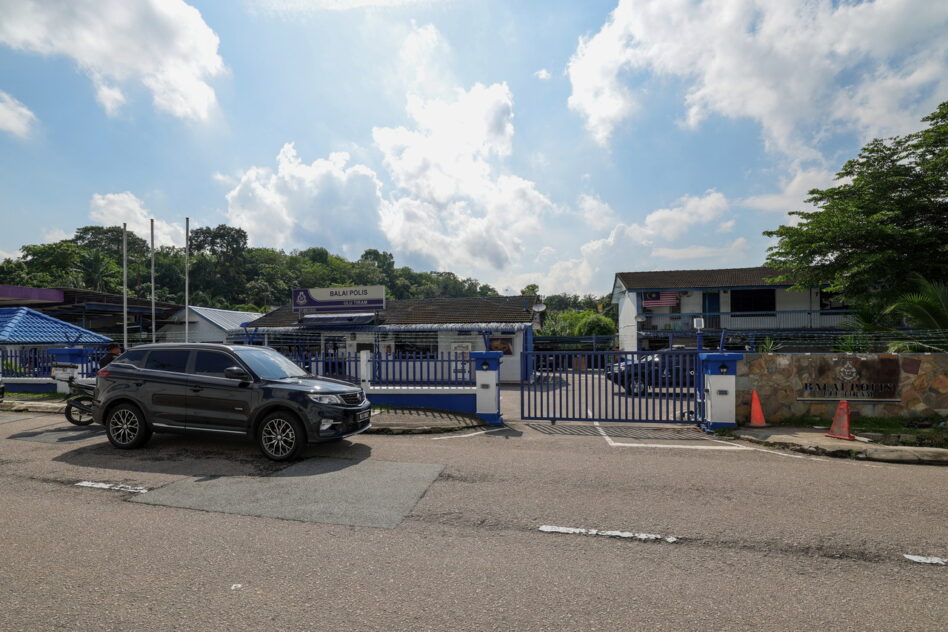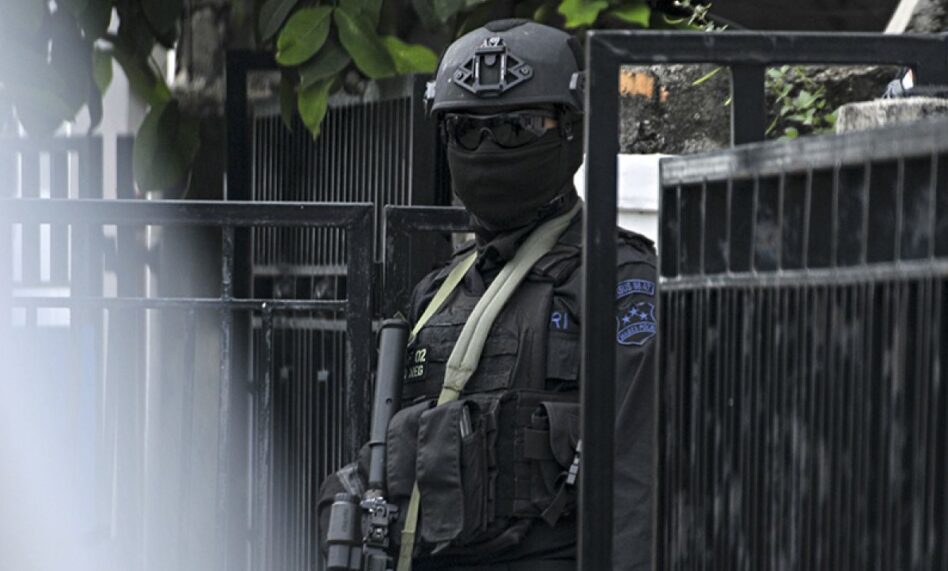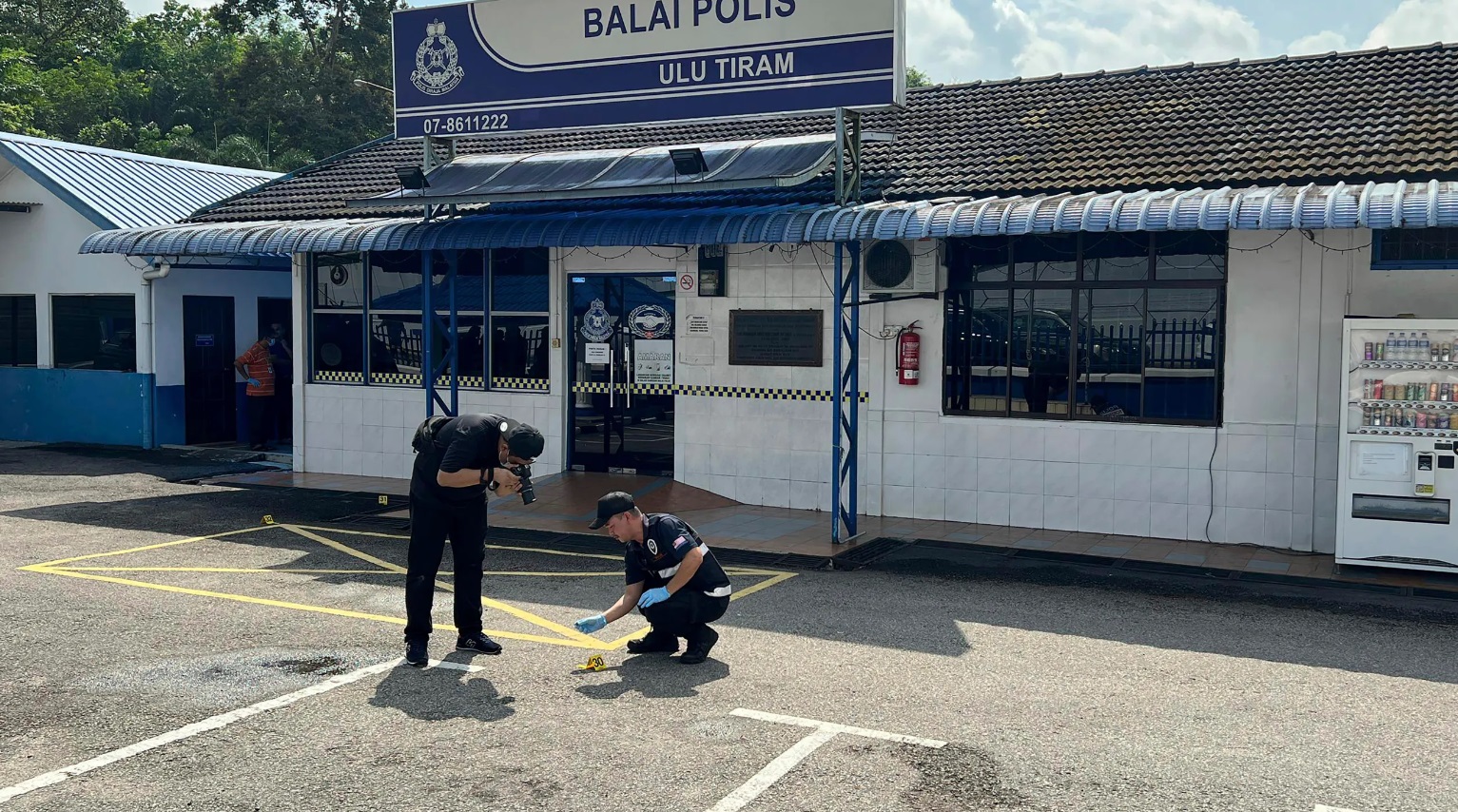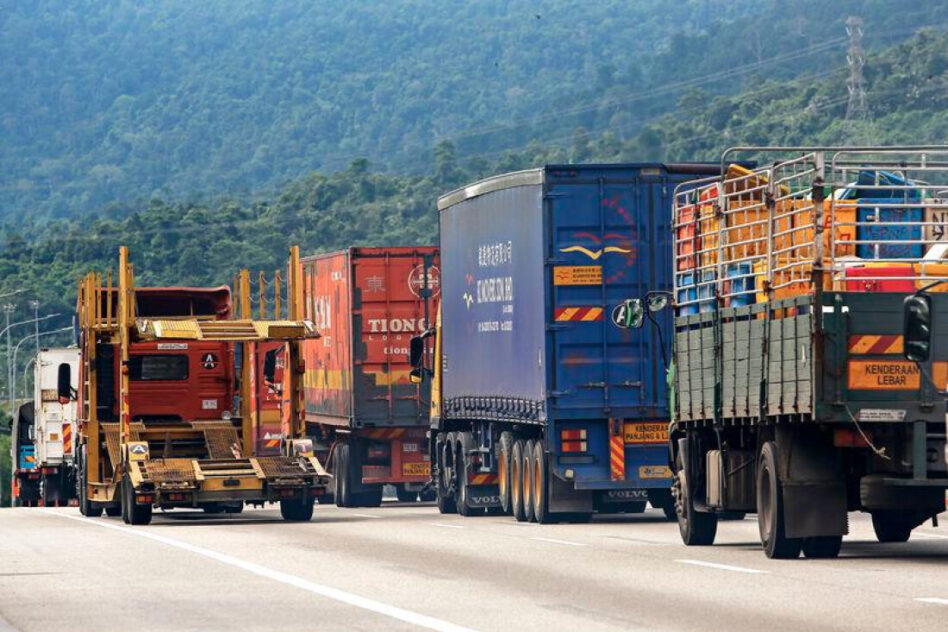YESTERDAY, Inspector-General of Police Tan Sri Razarudin Husain offered clarification on the suspect’s alleged ties to Jemaah Islamiyah (JI), indicating that it was linked to his father’s association with the extremist organisation.
Furthermore, he verified that the male suspect behind the assault on Ulu Tiram Police Station has been identified by the authorities and is not affiliated with any terrorist groups.
The orchestrated attack, in my assessment, was meticulously planned and effectively carried out by the deceased terrorist.
While the motive behind the terrorist’s actions is still being investigated, the objective of causing harm and casualties to the police officers unfortunately materialised.
It is imperative for us, as Malaysians, to recognise that this incident cannot be viewed in isolation. The Royal Malaysia Police (PDRM) is responsible for the internal security of our nation.

Consequently, it is overbearing to take strict and uncompromising action against any individuals or groups, including terrorist organisations or organised crime syndicates, who target police stations or officers.
Moreover, assaults on police stations and officers will diminish the trust of the public in the effectiveness of the force and may signal to these groups that the PDRM is susceptible and feeble.
In the past, there have been instances where police stations and officers have been targeted by terrorist groups and organised crime.
For example, in October 1980, the Batu Pahat police station in Johor was attacked by 16 members of the extremist group, Kumpulan Nur Zaman.
The attackers launched a violent assault on the station, leading to a bloody confrontation where eight assailants were shot dead and 23 individuals, including 14 policemen, sustained injuries.
Similarly, in February 2001, the Guar Chempedak police station in Kedah was targeted by a religious extremist group attempting to steal weapons from the station, resulting in two injured policemen.
In June 2020, Indonesia experienced a terrorist incident that bore similarities to the attack in Ulu Tiram.
A member of the terrorist group Jamaah Ansharut Daulah (JAD) South Kalimantan network carried out an assault on the Daha Selatan Police in South Kalimantan.
Tragically, this attack resulted in the death of one police officer and left another with severe injuries. The incident occurred at 2:15am, during which one of the attackers brandished a katana, a traditional Japanese sword.
Prior to targeting the police, the assailant also set fire to two vehicles near the Daha Selatan Police Station.
Despite the prompt arrival of the authorities, the attacker refused to surrender and was subsequently shot dead by the responding officers.

Upon further investigation, authorities uncovered that the perpetrator was in possession of an ISIS flag and a written ultimatum associated with the Islamic state and jihad.
Thus, law enforcement detained two suspects with alleged ties to terrorism and affiliations with JAD.
These individuals were part of the South Kalimantan division of JAD, a terror group linked to the Islamic State that carried out a series of attacks, including suicide bombings at churches in Surabaya in 2018, resulting in multiple casualties.
The alleged mastermind of the assault on the South Daha Police was apprehended in the Banjar Baru region of South Kalimantan by the Indonesian National Police’s Densus 88 counterterrorism unit.
The parallels between Ulu Tiram and Daha Selatan Police involve the terrorists’ utilisation of a sword to assault officers, the execution of the attacks in the early morning hours, the strategic timing of the attacks when officer presence was minimal, the implementation of a distraction prior to the attacks, and the unwavering commitment of the attackers in both instances to sacrifice their lives for their cause.
This pattern poses a significant threat to national security, underscoring the susceptibility of our police stations and its officers.
In December 2020, three police officers were fatally shot by a gunman while responding to a domestic violence incident in central France.
This tragic event was reminiscent of the October 2019 attack at Paris police headquarters, where a radicalised police computer operator stabbed four colleagues to death before being killed.
Likewise, in February of this year, a devastating assault on a police station in Khyber Pakhtunkhwa province, Pakistan, resulted in the deaths of at least 10 officers. Over 30 militants orchestrated the attack, leading to the loss of these officers’ lives.
The US Country Reports on Terrorism 2022 highlighted an incident in Bangladesh on November 20, where militants freed Moinul Hasan Shamim and Abu Siddiq Sohel, who were convicted for their involvement in the 2015 murder of Bangladeshi publisher Faisal Arefin Dipan.
This attack took place at the Dhaka Chief Judicial Magistrate building, with 20 suspected members of the banned al-Qaeda-affiliate Ansar al-Islam being charged with aiding in the escape.
Terrorist attacks on police stations and officers are a common occurrence globally. However, the severity of the recent attack on Ulu Tiram police station, resulting in the tragic deaths of two police officers, necessitates a re-evaluation of the security measures in place to protect these stations and their personnel.
It is crucial for the government to allocate adequate resources to enhance security measures at police stations and ensure the safety of officers at nationwide.
Additionally, it is vital that we allow PDRM to conduct a thorough investigation into this matter without any external interference.
An attack on a police station and its officers should be treated as a direct threat to the sovereignty of our nation, considering the potential involvement of a terrorist and their affiliated organisation. – May 20, 2024
R. Paneir Selvam is the principal consultant of Arunachala Research & Consultancy Sdn Bhd (ARRESCON), a think tank specialising on strategic national and geo-political matters.
The views expressed are solely of the author and do not necessarily reflect those of Focus Malaysia.
Main pic credit: KARK









